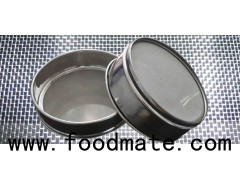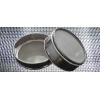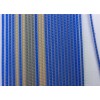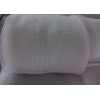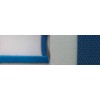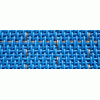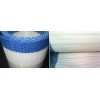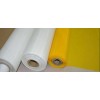Compared with common woven wire cloth, tensile bolting cloth ss mesh screen woven with thinner wire diameters relative to the mesh count, enjoy increased percentage of open area and faster powder flow through the screen.
Super thin mesh fabric with fine filter property is used for fine grading in flour mills used as flour mesh or stand flour mesh sieves. Compared with polyester mesh bolting cloth, stainless steel screening mesh can have very small elongation of wire mesh at high tension. While polyester mesh
has less weight and less cost. Both Stainless Steel and Polyester Bolting Cloth can be supplied with a variety of wire diameter, micron mesh sizes and thin fabrics for standard test sieve screen uses. Both fabrics are sturdy and durable.
Popular Sizes for Sifting and Sieving Screen Uses:
316 grade 22x22 mesh x 0.0075 wire diameter x 69 percent open area
316 grade 200200 mesh x 0.0016 wire diameter x 46.2 percent open area;
316 grade 165 x 165 mesh x 0.0019 mm wire diameter 47.1% open area;
304 grade 94x94 mesh x 0.0035 mm wire diameter, x 44.5% open area.
Fine micron stainless steel mesh cloth can be used as silk printing screen for Textile Printing, Ceramic Printing, Glass Printing, Graphics Printing, Electronic Printing, CD/DVD Printing, etc.
Weave: Plain Weave.
Features:
High tension: Much higher tension than common polyester mesh and smooth tension;
Super precision: Uniform wire diameter and aperture with extremely low difference;
Low elongation: Very small elongation of wire mesh at high tension;
High flexibility: The wire mesh will not lose elasticity at extreme tension;
High corrosion resistance: The excellent corrosion resistance of stainless steel wire exceeds polyester fiber;
Non-electrostatic: To avoid affects of non-electrostatic for print and ensure the safety of printing;
Good heat-melting resistance: Special features of stainless wire mesh. Suitable for heat-melting ink;
Good solvent resistance: To avoid the affects of any solvents to wire mesh and to ensure the safety of print screen.


